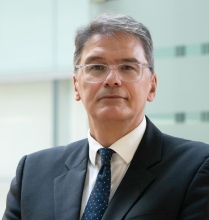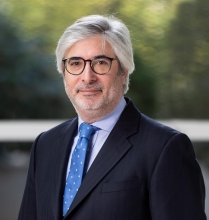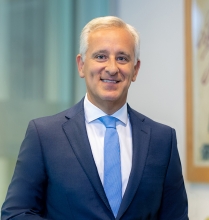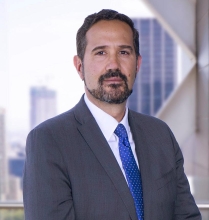International Arbitration Newsletter - July 2020 | Regional Overview: Asia Pacific
The most relevant Asia Pacific updates from the global International Arbitration and ADR practice group at Garrigues.
CHINA
Chinese state-owned company wins gas field claim
As disclosed by Primeline Energy Holdings, a company listed in Toronto but based in Hong Kong, a SIAC tribunal has denied its US$ 500 million claim against China’s state owned entity China National Offshore Oil Corporation (CNOOC) and its affiliate over a gas field.
The arbitration was commenced in 2016 and relates to a dispute arising from a petroleum contract on the LS 36-1 gas field in the East China Sea that is operated and 51% owned by CNOOC’s subsidiary CCL, while Primeline holds the remaining stake. Primeline alleged the CCL’s mismanagement of the project had delayed the onset of the field’s production for around one year, that CCL had acted bad faith and that CLL had acted improperly as Primeline’s agent in dealing with a distributor of gas from the field. Primeline sought to terminate the Contract and damages of approximately US$ 308 million, or alternatively damages resulting from CNOOC and CCL’s breaches of the Contract and related agreements in the event that termination claim could not be upheld.
The tribunal rejected Primeline’s termination and damages claims, but partly upheld CNOOC’s counterclaim, ordering Primeline to pay approximately US$ 30 million plus interest. Due to the impact of such award, Primeline declared its insolvency as it is in default under its credit facility with the syndicate of banks, which financed its investment in the oil field.
INDIA
Award upheld in Indonesia
A recent stock exchange filing has revealed that an Indonesian Central Jakarta District Court has dismissed the challenge filed by Seychelles-based Prestige Capital Holdings and Indonesian businessman Kokos Jiang, against a US$ 68 million SIAC award rendered in favor of India’s Reliance Power over three coal-mining concessions.
In 2010 Reliance purchased the disputed three Indonesian coal-mining concessions, of which the total coal resources is asserted to be approximately 1.5 billion tons, from Indonesia’s Sugico Group that is owned by Kokos Jiang.
Prestige Capital and Kokos Jiang launched the challenge in Jakarta in order to annul the whole award, which held them jointly and severally liable to pay Reliance in an amount of US$ 56 million (now worth US$ 68 million with accumulated interest). However, the court rejected the challenge but granted the enforcement of the award. Notwithstanding, Kokos Jiang has obtained a stay of enforcement of the award as a result of the separate Indonesian proceedings he pursued against Reliance over the loss of the three mining concessions.
South korea
South Korean video game developer wins third consecutive award in a month
South Korean video game developer WeMade (“WM”) announced that in a ruling by an ICC tribunal Shanda Games and two subsidiaries –South Korea’s Actoz and Shanghai based Lansha Information Technology– were liable in a dispute over property rights to The Legend of MIR 2, an online role-playing game that has more than 200 million registered players.
This decision is the third consecutive favorable ruling in a month for WM on online role-playing games. Another of these three awards is, in fact, the largest case the Korean Commercial Arbitration Board has seen, an award of more than US$ 240 million against a Chinese company called Kignet.
The arbitration moves to a new phase in which it must decide on the quantum to be paid to WeMade for the damage caused.
Korean energy producer threatened by ICC claim
US energy company, FuelCell Energy¸has launched a US$ 200 million ICC arbitration against its partner, Korean POSCO Energy (POSCO), South Korea’s largest private energy manufacturer, and its spin-off company Korean Fuel Cell (KFC).The arbitration arises from a series of technology license agreement entered into by POSCO and FuelCell Energy during 2007 to 2012, under which the latter granted the former exclusive rights to distribute and manufacture the products using its proprietary “SureSource” fuel cell technology in Asia. POSCO was required to pay certain royalties on its net product revenue and fuel cell module replacements in consideration of the technology license.
FuelCell Energy contends it has not realized any material revenues from POSCO since late 2015 and POSCO spun off its fuel cell business into KFC IN 2019 without its consent, transferring the manufacturing and service rights under the license agreements to KFC while retaining the distribution rights and “severed its own liabilities” to FuelCell Energy. POSCO is accused of the material breach of license agreement after being notified the same by FuelCell Energy, its cessation of production and sales activities, its disclosure of material non-public information to third-parties, and damage of FulCell Energy’s reputation and stock price due to its public media pronouncements on grounds of the unauthorized spin-off.
LAOS
Laos faces new AIAC claim from Thai company
After failing to reach a settlement with Laos after a prior award issued in 2018 favoring Thai-Lao Lignite (TLL) over the termination of a coal-fired power plant project was revoked by Malaysian courts, TLL has launched a new claim for US$ 450 million compensation over the same matter to the Asian International Arbitration Centre (AIAC) against Laos. The compensation includes TLL’s damages on its investment in the Project, lost profits and the costs incurred from the first arbitration and various related court proceedings.
The dispute arises from a project development agreement for the Project in 1994. TLL contends that Laos failed to provide support for the Project thus breached its obligations thereof, wrongfully terminated the Agreement by expropriating and nationalizing the Project without paying fair compensation in 2006, and ousted TLL from the Project by colluding with the commercial partner of TLL. Therefore, in 2007, together with its local affiliate Hongsa Lignite, TLL filed a UNCITRAL claim for US$ 447 million. The award was issued in 2009 ordering Laos to pay US$ 56 million plus interest. Up to 2012, while the award had been confirmed in Paris and enforced in London and New York, Malaysian High Court revoked the award on the grounds that it exceeded the jurisdiction of the tribunal. This ruling was upheld by the Federal Court of Malaysia in 2017. The application filed by TLL and Hongsa Lignite to enforce the award was dismissed by Singapore High Court as well.
TLL filed the new AIAC claim by holding that without any findings in the enforcement or revocable proceedings to prove the invalidity and unenforceability of the arbitration agreement, it is entitled to file a new claim under the existence of disputes. In addition to the compensation, TLL also claims that Laos’ bid to revoke the first UNCITRAL award and resist the corresponding enforcement constitute a breach of the Agreement.
Contacts




-
+52 55 1102 3570
-
+57 601 326 69 99

-
+56 2 29419000


